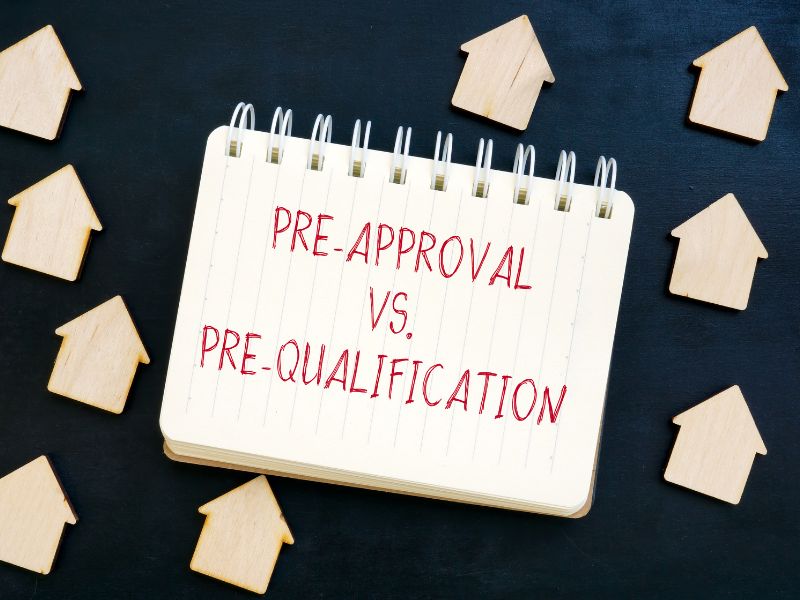Pre-approval vs. Pre-qualification
 Pre-approval and pre-qualification are terms commonly used in the context of mortgage loans, but they can also apply to other types of loans. While they sound similar, they have different meanings and implications in the loan application process:
Pre-approval and pre-qualification are terms commonly used in the context of mortgage loans, but they can also apply to other types of loans. While they sound similar, they have different meanings and implications in the loan application process:
-
Pre-qualification:
- Definition: Pre-qualification is a preliminary assessment of a borrower’s financial situation based on information provided by the borrower. It does not involve a thorough analysis of the borrower’s credit report or an in-depth look at their ability to borrow.
- Process: To get pre-qualified, a borrower typically provides information such as income, debt, and assets to a lender or uses an online tool. The lender uses this information to give the borrower an estimate of the mortgage amount they may qualify for.
- Reliability: Pre-qualification is a less formal process and is not a commitment from the lender. It’s more of an estimate or a starting point for a home search.
-
Pre-approval:
- Definition: Pre-approval is a more formal process where a lender thoroughly evaluates a borrower’s financial background, including a detailed examination of their credit report. The lender issues a conditional commitment to lend a specific amount, contingent on the property appraisal and other conditions.
- Process: To get pre-approved, a borrower typically completes a mortgage application and provides necessary documentation, such as pay stubs, W-2 forms, bank statements, and consent for a credit check.
- Reliability: Pre-approval is a stronger indication of a borrower’s ability to secure a loan. It demonstrates to sellers that the borrower is a serious and qualified buyer.
In summary, pre-qualification is a preliminary assessment based on information provided by the borrower, while pre-approval involves a more comprehensive analysis, including a credit check. Pre-approval is generally more reliable and holds more weight in a real estate transaction. Keep in mind that the specific processes and requirements can vary among lenders.

 Those who are involved in the real estate industry likely know that mortgage rates are at an all-time low. At the same time, nobody wants to pay more for a house than they have to. Some of the most important factors that dictate how much someone is going to pay for a house include points and interest rates.
Those who are involved in the real estate industry likely know that mortgage rates are at an all-time low. At the same time, nobody wants to pay more for a house than they have to. Some of the most important factors that dictate how much someone is going to pay for a house include points and interest rates. It’s easy to get Private Mortgage Insurance (PMI) confused with homeowners’ insurance, but PMI is an entirely different thing that may or may not be necessary when it comes to your home purchase. If you’re going to be investing in a home in the near future and are wondering what PMI may mean for you, here are some things to consider regarding this type of insurance.
It’s easy to get Private Mortgage Insurance (PMI) confused with homeowners’ insurance, but PMI is an entirely different thing that may or may not be necessary when it comes to your home purchase. If you’re going to be investing in a home in the near future and are wondering what PMI may mean for you, here are some things to consider regarding this type of insurance.